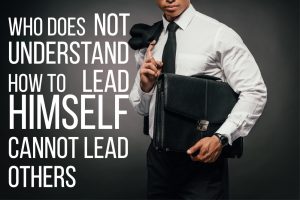How Much is Your Opinion Worth?
By Coach Colle Davis
In this era of spin and fake news, it is a good idea to ask yourself, “What value do other people assign to my opinions?”
- Do others accept your opines as the Holy Word and hang onto your words as having life-shifting importance?
- Are your statements and profundities well-researched, documented, and logically defensible?
- Do your comments have a purpose capable of impacting other’s beliefs?
- Are your behaviors reflecting the value you bring to the conversation?
‘Opinions are like armpits; most everyone has a couple.’ Old country expression.
 People who believe their opinions have value are interesting, presumptuous, silly, one-sided, and misguided. Beliefs and opinions hold the biases and baked-in stupidity of one’s past.
People who believe their opinions have value are interesting, presumptuous, silly, one-sided, and misguided. Beliefs and opinions hold the biases and baked-in stupidity of one’s past.
To offer an unsolicited opinion to anyone is an insult to the person to whom you are speaking. Sharing facts and offering support deepens rapport, while expressing an opinion deepens mistrust.
When asked for your opinion, check to see if the person is attempting to be polite. They may be tired of talking and need you to fill the air space. Social media exists to help us learn the opinions of others.
Opinions are different than reviews in one crucial aspect. Reviews are for products, services, their functionality, and what they offer the purchaser. Opinions in reviews state they are personal biases (good or bad).
When I want to buy something on Amazon, I read bad reviews first, and I have noticed most of them discuss shipping, poor packaging, slow delivery, wrong size, etc., and only rarely review the product itself. Then I read the top reviews and see how the reviewers document how the product functioned, the quality, and if it accomplished the task it was purchased to fulfill. This paragraph reveals my behavior is documented, not my opinion.

Do you value the opinions of your peers? Your boss? The waiter? Is the person posting a rant on the behavior of a politician? Where do you place the sanity filter? How can you tone down the noise and hear the honest value in what someone is saying?
Start with the question, “How valuable is the source?” Rate the credentials of the opinion-sprouting person as your first clue. Opinions are simply that, opinion. Think ‘talking heads’ in the news today and the trivia they can stretch out to fill the time but say nothing of value. Opinions come from the biases and beliefs of the speaker, who feels their pronouncements have value and the world needs to hear them and embrace their view of the world. It’s pretty simple to ignore their distortions and reduce the importance of the person’s pronouncements.
Here’s the challenging part: looking in the mirror and asking yourself, “How much do others value my opinion?”
- Do you have the credentials to make decrees outside of your expertise? Or are you better served to demonstrate your value through your behavior?
- Do others solicit your specific input on a task, or do they want to chat and ask, ‘What do you think of . . . ?’ Be honest; gossip is fun, interesting and sometimes juicy. It is laced with opinions and rarely contains enough facts to be important.

Not knowing the basic rules of engagement for creating rapport to build your character or make water-cool talk has ruined careers and can cause you to look like a buffoon.
Having discussed advice about proffering unsolicited opinions in the workplace, let’s look at what information about yourself you can offer others to build your character. Using a clever character-building tool called The 30-Day Rule. It is very simple.
You can master the 30-Day Rule by giving people unemotional information about events or situations about yourself during 30 days on either side of the day. In other words, talk about events or situations that happened 30 days before today or will occur 30 days after today.
Example: “What’s new?”
Answer: “I’m starting a series of classes at the local hardware store to learn to remodel my kitchen.”
Perception: What the person heard: “He’s curious and likes to stay busy. He likes to learn new things. He probably owns his own home and likes taking care of it. He’s a creative and responsible person.”
How valuable and indispensable have you made yourself and your job? Opinions freely given are seldom appreciated and do nothing to further your career. That statement is not an opinion; it is from the cold, hard facts of being a coach to senior executives in the business world.
 How do you act in public? What about the public persona do you find important, interesting, powerful, or unique? How will the real you benefit those around you? How will you benefit from being the real you in public?
How do you act in public? What about the public persona do you find important, interesting, powerful, or unique? How will the real you benefit those around you? How will you benefit from being the real you in public?
These questions are tough to answer. The energy involved may give you brain cramps. The risk/reward value has to be high enough, or you will revert to type. You know, the old you.
When you are ready to shed the old skin and let the real you out into the world, contact me to set up a Zoom call.
 Contact me if you or someone you know needs help in these areas. I am a Senior Level Master Coach and Certified Hypnotist with nearly 40 years of experience helping corporate clients. Reserve your free thirty-minute Zoom call with me; your life will never be the same. 804-467-1536 EDT cdavi*@*****ch.com
Contact me if you or someone you know needs help in these areas. I am a Senior Level Master Coach and Certified Hypnotist with nearly 40 years of experience helping corporate clients. Reserve your free thirty-minute Zoom call with me; your life will never be the same. 804-467-1536 EDT cdavi*@*****ch.com

